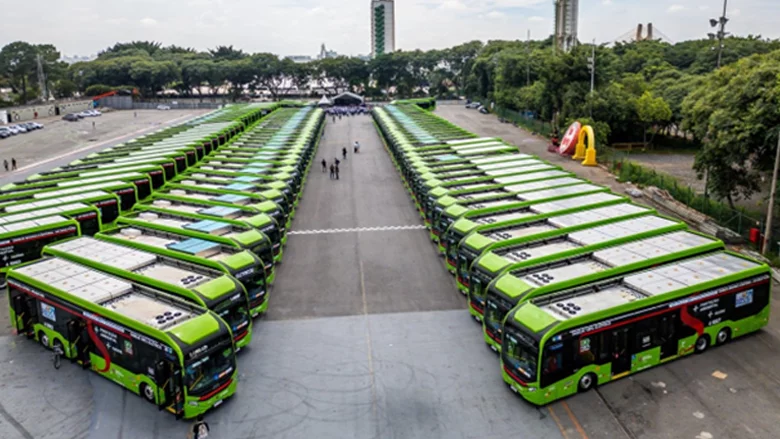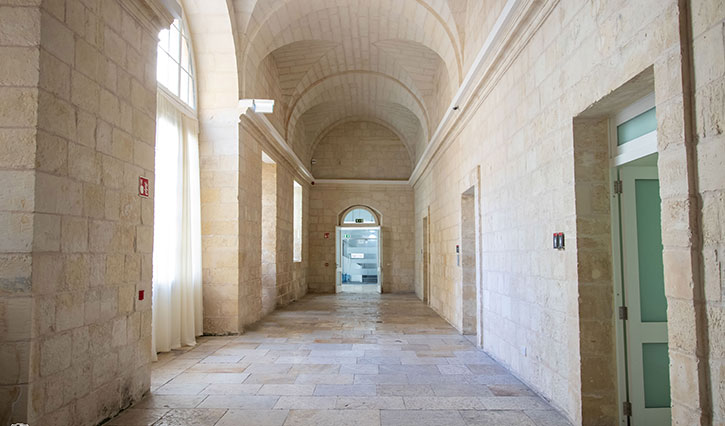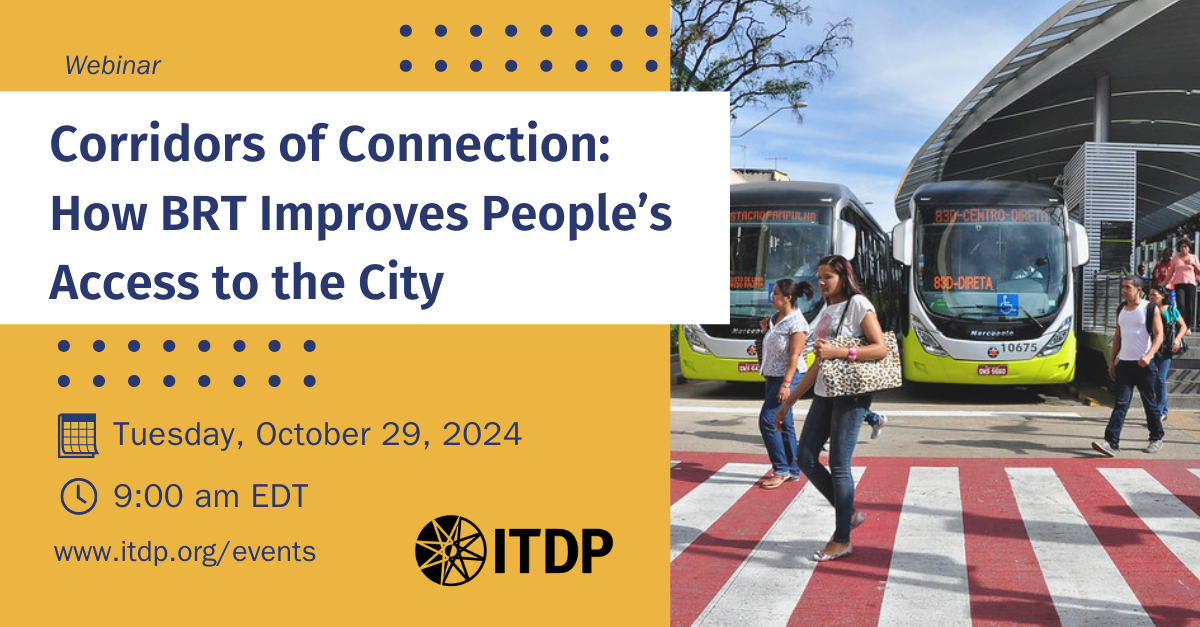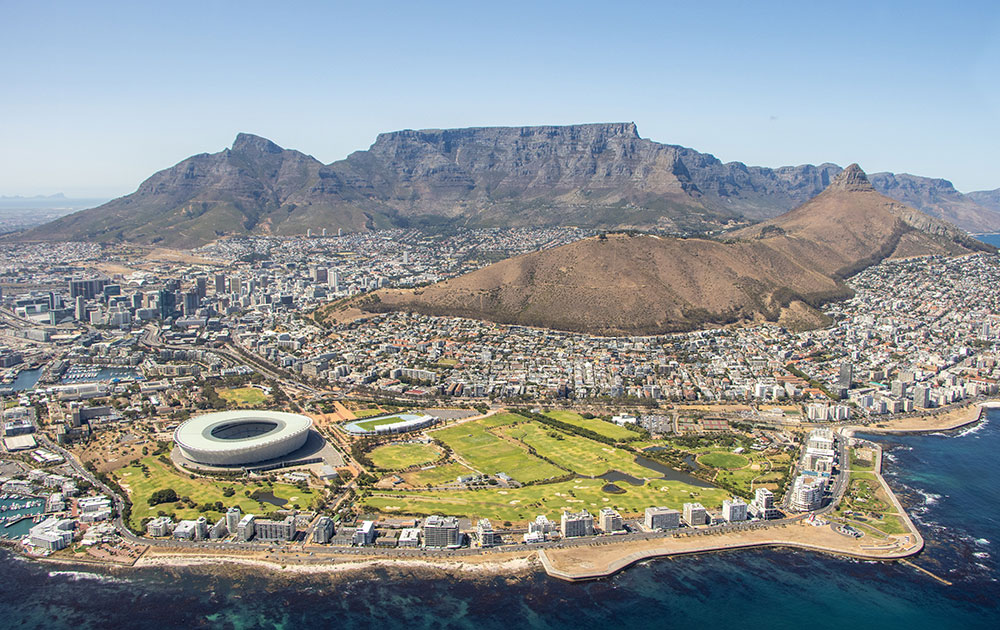Source: EMBARQ India
EMBARQ India and APSRTC conduct workshop for bus transport professionals
 Visakhapatnam: Representatives from over 20 city bus transport agencies, private operators, and other stakeholders, including organisations in Indore, Bangalore, Delhi, Mumbai, Coimbatore, Rajkot and Naya Raipur attended a two-day training workshop conducted by EMBARQ India with support from the Andhra Pradesh State Road Transport Corporation (APSRTC), in Visakhapatnam on 30th and 31st August 2012. This workshop, on driver training, fuel efficiency, and vehicle maintenance, was the second of EMBARQ India’s Talking Transit series, an initiative of the Bus Karo Plus programme.
Visakhapatnam: Representatives from over 20 city bus transport agencies, private operators, and other stakeholders, including organisations in Indore, Bangalore, Delhi, Mumbai, Coimbatore, Rajkot and Naya Raipur attended a two-day training workshop conducted by EMBARQ India with support from the Andhra Pradesh State Road Transport Corporation (APSRTC), in Visakhapatnam on 30th and 31st August 2012. This workshop, on driver training, fuel efficiency, and vehicle maintenance, was the second of EMBARQ India’s Talking Transit series, an initiative of the Bus Karo Plus programme.
Under the JnNURM scheme, the Ministry of Urban Development (MoUD) has assisted many cities to initiate or expand their city bus operations. In the decades to come, bus-based transport will be integral to urban public transport owing to its relatively low cost, quick implementation, and flexibility. However, bus transit agencies continue to face challenges owing to several operational, financial, and administrative issues. The workshop looked at strengthening bus operations with a focus on driver training and fuel efficiency. Experts from local and international agencies spoke on the subject. Thanks to improved operational efficiency, APSRTC in Visakhapatnam has been achieving an efficient 5.22 kilometers per liter (kmpl) on its city routes over the last decade. This is contrary to the popular belief that fuel economy is solely dependent on vehicle maintenance or purchasing new buses with improved technology. Operational efficiency saves the corporation close to 9 percent of the total cost of operations.
The workshop focused on APSRTC’s experiences and the lessons learnt from their operational best practices that would help other city bus transit agencies improve their transport services, passenger safety, financial viability, and the impact on the environment. This workshop and the Talking Transit workshop series are supported by a grant from the FedEx Corporation.
Day One
Day one of the workshop started with an inaugural addresses by Sudhakar Rao, Executive Director, ASRTU, Rama Krishna, Executive Director, APSRTC, and Sandeep Garg, UNDP. Amit Bhatt, Strategy Head – Urban Transport, EMBARQ India, introduced the Bus Karo Plus programme as a learning network and a platform for the sharing of best practices in bus based transport around the country. The programme consists of Talking Transit, a workshop series; Mentoring Transit, assisting agencies in implementing pilot projects; and Learning Transit, developing and disseminating training material. Being the second workshop in the Talking Transit series, Amit presented a brief recap of the first workshop held in Bangalore in February, in partnership with the Bangalore Metropolitan Transport Corporation, on best practices in designing bus terminals, stops, depots, and other facilities for improving the quality of urban bus services.
Following this, K. Chandrasekhar, Chief Mechanical Engineer, APSRTC, spoke on his agency’s experience in achieving fuel economy, specifically focusing on the technical controls, targets, and MIS. By using the VEMAS vehicle maintenance software, under-performing vehicles and negative trends in fuel efficiency are identified. This has a major role to play in improving the system wide fuel efficiency. In addition, routine maintenance of vehicles take place on a regular basis to check for fuel tank leakages, condition of fuel filters, and various other maintenance parameters. Dedicated mechanics are present at all depots for technical assistance with specific maintenance issues.
Y. Jagadeesh Babu, Regional Manager, APSRTC spoke on the managerial controls set in place by which the agency is able to monitor fuel economy targets, and evaluate performance standards. The three-month training that APSRTC makes their drivers go through incorporates classroom and on-road training. Safety and fuel economy are emphasised throughout the training. Some of the buses used for training have in-built equipment that shows the trainees their fuel economy rating immediately after every driving session. Apart from the intense training, drivers not achieving targets during regular service have to periodically attend refresher-training modules. APSRTC also counsels drivers who have not performed well each month, and has developed a motivational film called ‘Indhanam’ to help drivers understand the importance of fuel conservation and the basics of engine behavior with regard to fuel. Monetary incentives are given to the most fuel-efficient drivers each month.
Mohammad Haneef, a former driver who is now a trainer for APSRTC, spoke on the driver-training course developed by APSRTC, based on simple principles of acceleration and safe driving. He presented his methods in training drivers on quick changing of gears, using the high torque output of engines, optimal driving methods using ‘power-point’ and ‘momentum’ concepts; as well as the in-vehicle requirements such as a raised platform near the accelerator pedal for adequate foot support and thus optimal acceleration, and ergonomic, well-ventilated seats.
Site Visit
After lunch, there was a site visit to the Maddilapalem depot and workshop where the group was taken around the facility and given a glimpse of the training facilities developed by APSRTC, including a simulator that gives the drivers a practical demonstration of how much fuel could be saved as a result of optimum acceleration. A demonstration of fuel efficient driving took pace with the group being taken on a bus ride, and the fuel efficiency of the ride measured afterwards.
Day Two
Day two of the workshop started with an early morning walk along Visakhapatnam’s coastal road. This road is designated as a no vehicle zone from 5:30 am – 7:30 am every morning. The municipal corporation has installed public bicycles, free for use along the corridor. B Ramanjaneyulu, IAS, Commissioner, GVMC introduced this innovative program in November last year to encourage community participation and create awareness about environmental management and pollution control. Several local residents use this time and space for meditation, as well.
Continuing with the sessions of the workshop, EMBARQ India staff presented on performance monitoring for city bus systems, using case studies from Bhuvaneshwar, Delhi, Hubli-Dharwad, Mumbai, and Visakhapatnam.
PP Rajendran, MD, Madras Transport Corporation, presented on the environmental impacts faced by the growing number of vehicles, and the importance of driver training in reducing fuel emissions and accidents caused by buses. He showcased the formal training structure implemented in the state of Tamil Nadu, focusing on psychological training through yoga and meditation, interpersonal relationships and team building, personal health and family welfare, eco-friendly driving methods for improved fuel efficiency, safer driving and accident prevention, and lab-based training for improved knowledge of the engine and the vehicle.
K. Chandrasekhar, APSRTC, then presented on fuel receipts, accountability and the various issues related to the same. In addition to fuel efficiency in driving methods, another major area of cost saving is the adequate stock keeping and storage of fuel at depots. The presentation involved accountability, storage, and vigilance of fuel, detailing procedures for stock keeping and measurement of fuel at the time of delivery, and the use of advanced software for managing the fuel accounting system. APSRTC also has a multi-layered impurity detection method used for advance record keeping, and multiple layers of security and scrutiny. All this helps in achieving negligible losses in fuel.
RH Minhas, Delhi Transport Corpotation, spoke on the lessons learnt from Delhi’s experience of conversation of the bus fleet from diesel to CNG, and the resulting benefits, like lower operating costs after initial investment, lower fuel costs, lower emissions, and safety of usage owing to its narrow flammable temperature window of 5-15%.
In closing, Amit Bhatt spoke about the way forward from this workshop, reiterating EMBARQ India’s Bus Karo Plus initiative aimed at facilitating a shared learning network between cities, and stressed EMBARQ India’s commitment to organising similar workshops on related topics once every six months.
Related Links





